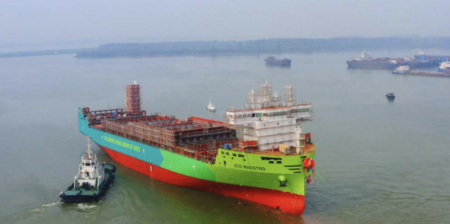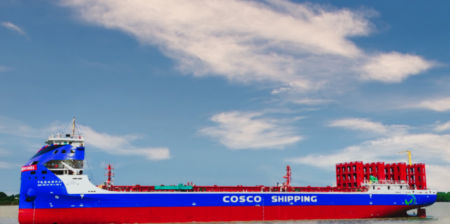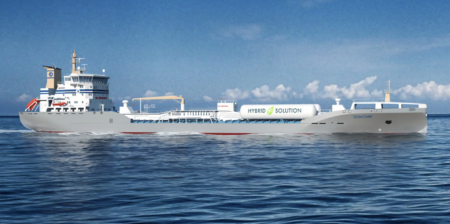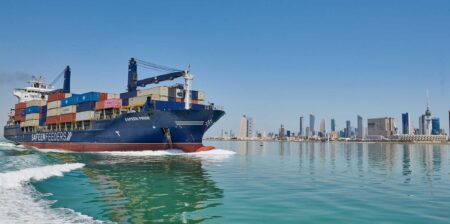Shell and Hapag-Lloyd collaborate on marine fuel decarbonisation and sign multi-year LNG supply agreement
Shell Western LNG B.V and Hapag-Lloyd today announced the signing of a multi-year agreement for the supply of liquefied natural gas (LNG) to Hapag-Lloyd’s ultra large dual-fuel container vessels of 23,500+ TEU.
Bunkering for these twelve new vessels is expected to commence during the second half of 2023 and LNG will be supplied in the Port of Rotterdam. The modern ships will be deployed on Europe-Far East routes and call at major ports including Rotterdam, Hamburg, Singapore, and Shanghai.
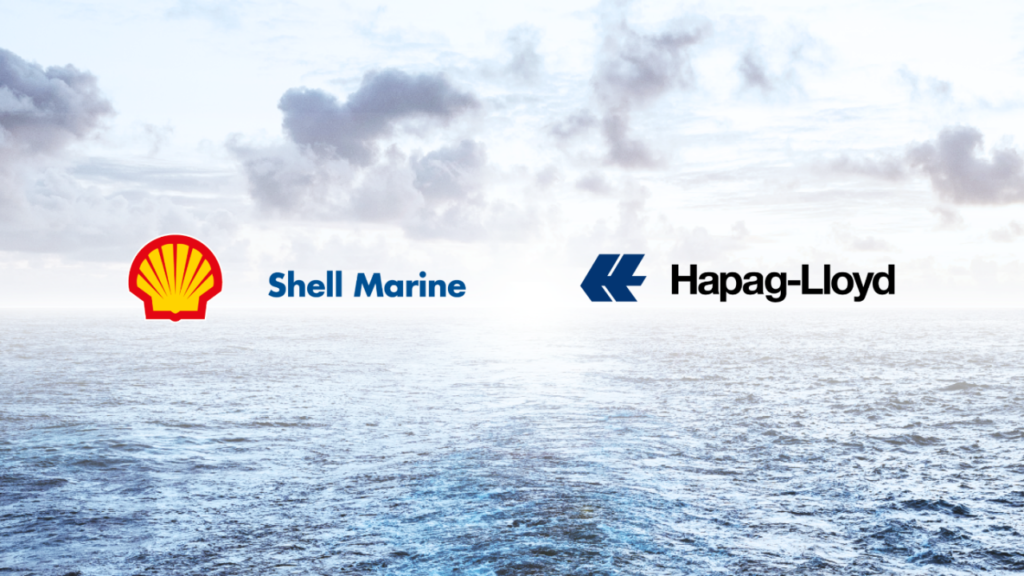
Using LNG enables Hapag-Lloyd to immediately reduce the CO2 intensity of these vessels by up to 23% compared to conventional fuels. Additionally, the use of LNG supports the almost complete reduction of particle emissions. This is another important step for Hapag-Lloyd to reduce emissions and decarbonise its fleet in line with its goal of becoming net zero carbon by 2045.
As a hard-to-abate sector, Shell is exploring the viability of, and investing in a range of fuels, technologies and solutions that will help decarbonise shipping. This includes the use of LNG, where through an extensive network of 15 LNG bunkering locations in 10 countries globally, Shell has already achieved over 1,000 safe ship-to-ship bunkering operations to its marine customers.
In addition to the LNG supply agreement, Shell and Hapag-Lloyd have entered into a strategic collaboration agreement intended to accelerate the further decarbonisation of alternative marine fuels. Initial focus will be given to developing the potential of additional low carbon fuels solutions including liquefied biomethane and the hydrogen-based fuel liquefied e-methane. Liquefied biomethane as a marine fuel has the potential to reduce greenhouse gas emissions by between 65% and 100%.
With a fleet of 252 modern container ships and a total transport capacity of 1.8 million TEU, Hapag-Lloyd is one of the world’s leading liner shipping companies. The Company has around 14,500 employees and more than 400 offices in 137 countries. Hapag-Lloyd has a container capacity of 3 million TEU – including one of the largest and most modern fleets of reefer containers. A total of 123 liner services worldwide ensure fast and reliable connections between more than 600 ports on all the continents. Hapag-Lloyd is one of the leading operators in the Transatlantic, Middle East, Latin America, and Intra-America trades.
Shell plc is incorporated in England and Wales, has its headquarters in London and is listed on the London, Amsterdam, and New York stock exchanges. Shell companies have operations in more than 70 countries and territories with businesses including oil and gas exploration and production; production and marketing of liquefied natural gas and gas to liquids; manufacturing, marketing and shipping of oil products and chemicals and renewable energy projects.
Tahir Faruqui, General Manager, Head of Downstream LNG at Shell
“We are delighted to have partnered with Hapag-Lloyd on this important initiative. Shipping decarbonisation must accelerate and, as the lowest-carbon fuel available at scale today, LNG is a key part of the transition to lower-carbon marine fuels. As we look to the future, we are committed to working with leading shipping companies like Hapag-Lloyd to establish the credible pathways to net zero.”Jan Christensen, Senior Director Global Fuel Purchasing at Hapag-Lloyd
“We are pleased to share the execution of this long-term supply agreement. Hapag-Lloyd has finalised a contract with Shell which secures flexible LNG supply at competitive terms. Furthermore, we are excited about our agreement with Shell to explore further decarbonisation opportunities as it allows both businesses to drive impactful change in the industry. Collaborations like this are crucial in helping us deliver our sustainability strategy while also improving emissions in maritime shipping. Ultimately, this enables our customers to decrease their carbon footprint as well.”
Happag-Lloyd company’s realase.
